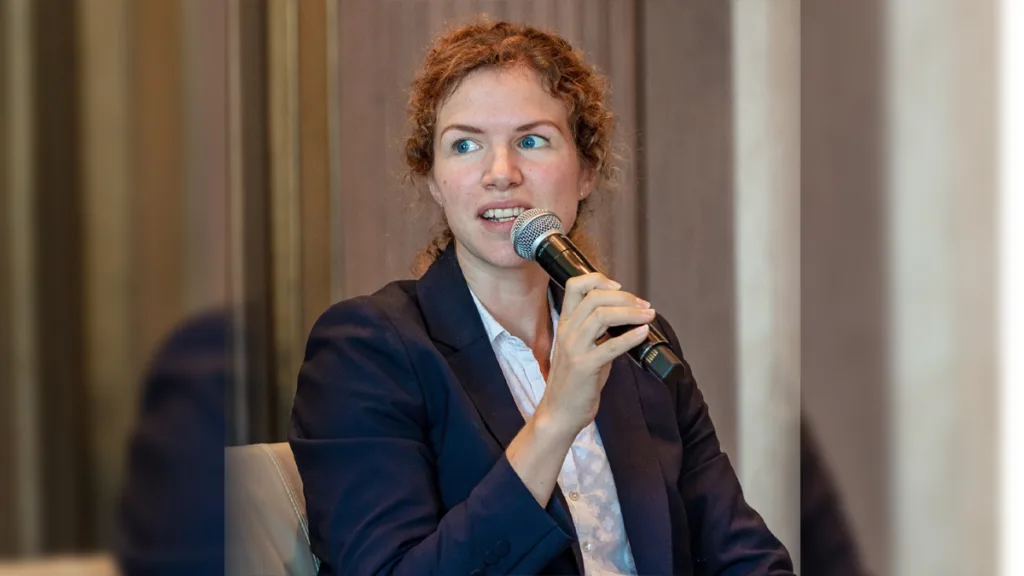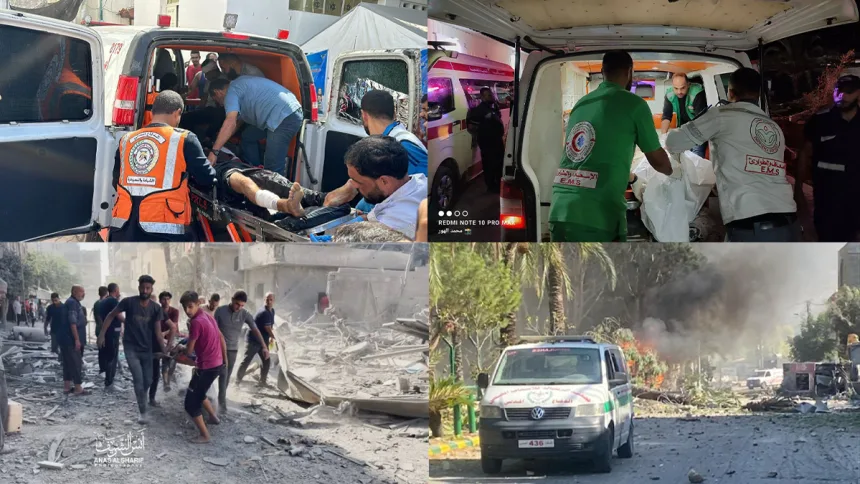On 21st November 2023, with heavy hearts, the World Health Organization (WHO) announced the death of 29-year-old Dima Abdullatif Mohammed Alhaj, a WHO staff member in Gaza, in the occupied Palestinian territory. She worked as a patient administrator at the Limb Reconstruction Centre, a critical part of the WHO Trauma and Emergency Team. Dima tragically lost her life when her parents’ house in southern Gaza, where she had evacuated from Gaza City, was bombed. Dima is neither the first nor the last in this tragic toll since the beginning of the war in Gaza and the ongoing conflict in Lebanon, many medical staff have lost their lives.
The deaths of medical personnel, the bombing of hospitals, the closure of clinics, and the blocking of medical aid have all resulted in catastrophic health situations in Palestine and Lebanon. Recently, the UN Independent International Commission of Inquiry on the Occupied Palestinian Territory, including East Jerusalem, found that attacks on medical facilities in Gaza, particularly those devoted to pediatric and neonatal care, have led to incalculable suffering for child patients, including newborns. According to the WHO report, from 7 October 2023 to 25 September 2024, there were 516 attacks on health facilities in the Gaza Strip. Out of these, 32 hospitals were damaged. This data provides a clear picture of the overall healthcare situation in Gaza.
To gain further insights into the situation and obtain healthcare updates from experts, MedEdge MEA spoke with Sophie Smith, CEO of Nabta Health. When asked about the healthcare status in Palestine and Lebanon, she said, “The state of the healthcare system is on the brink. With the latest siege on North Gaza, only 7 out of 10 hospitals remain operational. Yesterday, an urgent plea was made by a doctor, warning that unless food and fuel are brought into Gaza, the healthcare system will collapse again within a matter of weeks.”
Smith continued, “We discussed the 540,000 women of reproductive age who have been significantly and negatively impacted at every age and stage in terms of access to care. For example, we know that IVF centres housing thousands of frozen embryos were bombed.”
Struggle to access essential healthcare
Approximately 46,300 pregnant women in Gaza are experiencing severe hunger. Additionally, 155,000 pregnant and breastfeeding women are struggling to access essential antenatal and postnatal care. High transportation costs and inadequate ambulance services further hinder their ability to reach hospitals, many of which are operating at limited capacity.
“We know that children of couples who had been trying to conceive for 10 to 12 years were killed. We also know that the number and percentage of miscarriages among pregnant women have dramatically increased by over 300 per cent. The state of the healthcare system is, therefore, on the brink [of collapse],” Sophie Smith pointed out.
Also Read: MSF urges protection for civilians and medics amid Israeli bombardment in Lebanon
“I believe, as with many other issues, the number of pregnant women, miscarriages, and women adversely affected by the conflict has likely been drastically underreported,” she added.
Supporting expatriates together
As a global healthcare leader, Sophie Smith emphasized the importance of supporting Palestinians and Lebanese by making healthcare more accessible, especially for those fleeing conflict. She noted that many have lost everything and may arrive in new countries without resources or access to their funds. Healthcare providers can play a crucial role by offering accommodations for those in such situations, ensuring that essential care is available despite the challenging circumstances they face.
“We can allocate a portion of our resources to support displaced people. We can offer free initiatives like basic mental and physical health screenings, which nurses can often perform. Even if specialists aren’t available, nurses can handle education, screenings, medical histories, and breast exams. They can provide valuable recommendations through basic tests. There’s a lot of good that can be done for very little cost. As long as displaced people are arriving in the countries where we operate, we should be doing this.”
We are here to help you
During tragic situations, people experience distress and require healthcare, while Palestinian and Lebanese expatriates face mental trauma in various parts of the country. Providing prompt psychological support is crucial.
The CEO of Nabta Health, Sophie Smith, has started efforts to support expatriates from war-torn zones in the UAE in a collective and long-lasting manner. “With our initiative at Nabta, our goal is to make healthcare accessible first and foremost to Palestinians living here in the UAE, as well as to those with relatives in Gaza and the West Bank. We’ve also been considering extending this to include Lebanese individuals. However, the key point is that we didn’t want this to be fleeting or temporary. We are committed to continuing this effort until a resolution is reached, recognising that it cannot be a one-time or short-term initiative,” Sophie shared.

“We didn’t avoid taking action; instead, we focused on determining what we could do in the early days of the conflict that wouldn’t come across as a marketing stunt. This is not, and has never been, a marketing stunt for us,” she added.
Suggestions for expatriates
Palestinian and Lebanese expatriates live in constant fear of life and death, making it difficult to understand their situation unless we empathize with them. At this critical juncture, the health of expatriates from war-torn zones is also an important point to note. When asked for specific advice, Sophie Smith said, “I would say that when things are tough and complicated, focusing on doing one or two basic things well can make a big difference. If I had to recommend just one thing, it would be to get eight hours of sleep every night. The world will seem less dark and terrifying when you are well-rested. I understand it can be difficult, maybe you’re scrolling through your phone, waiting for the next update, or you can’t sleep because your mind is racing. But if you invest time and energy into doing one thing well, even if it means getting help, taking a magnesium supplement, or creating a bedtime routine to wind down, getting eight hours of sleep each night can make a significant difference.”
Message to all
This is a time for standing in solidarity with Palestinians and Lebanese here in the UAE. Private entities are joining hands to support those in need along with great effort from the government like, the ‘Tarahum-for Gaza’ campaign aims to provide relief to affected Palestinians, while the ‘UAE Stands with Lebanon’ initiative seeks to deliver urgent humanitarian relief amid the ongoing crisis in Lebanon.
As a healthcare expert, Sophie Smith states, “I always tell our team and others that, as an employer, your first customers are your employees. Before focusing on patients or the people you serve, the easiest thing you can do is prioritize the health and well-being of your teams. We have team members from all over the world, including several from Lebanon and Syria, with family and friends across the Middle East who are suffering. Make it easy for them to open up and share, and if you have resources, make them available to your team.”



















